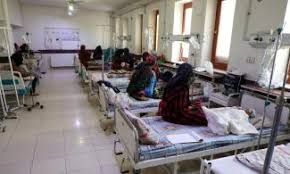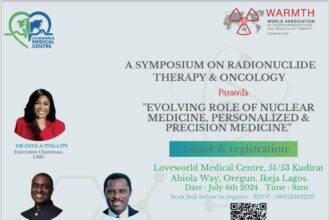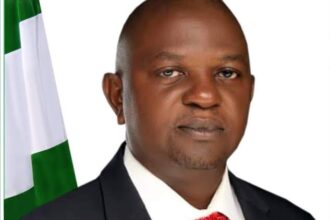Against the backdrop of Nigeria’s population of demographics, including children, the elderly, and people with disabilities, stakeholders convened at the maiden Caring Africa Summit in Lagos to champion comprehensive reforms in the country’s care industry. Chinyere Okoroafor reports that Nigeria has the highest number of older people in the continent, and the 19th highest across the globe, with the population of Nigerians aged 65 and older projected to triple by 2050.
With the mass exodus of young Nigerians to foreign countries, the homecare role in the country is gradually solidifying, especially for the elderly as many seek care for their aged parents and relatives left behind.
Meanwhile, according to stakeholders, Nigeria’s caregiving industry is still at its infant stage and largely informal and unregulated.
Caregiving is providing care for the daily needs of someone that is unable to care for them. The care may include addressing the physical, domestic and emotional needs of someone that requires continuous support and attention. The individual could be a loved one, child or a friend. Most caregiving occurs in the home.
At the Caring Africa Summit, organized by Founder/Chief Executive Officer of MH Worklife, Blessing Adesiyan, stakeholders echoed that a strategic focus on the care industry is not just a societal imperative but a visionary pathway to prosperity.
Nigeria, like many nations, stands at a crossroads shaped by demographic shifts. With life expectancy on the rise and an increasing number of elderly citizens, the traditional support systems of familial care face unprecedented challenges too because young people are either studying or working.
Nigeria faces demographic shifts characterized by an aging population and increasing prevalence of chronic health conditions.
According to a 2022 article published by Gerontologist, the official journal of the Gerontological Society of America, Nigeria currently hosts the highest number of older people in Africa, and the 19th highest across the globe, with the population of Nigerians aged 65 and older projected to triple by 2050.
Moreover, About 5.9 million Nigerians are aged 65 and above, records from the centre show, with more than half of the population battling illnesses such as diabetes, stroke and arthritis that leave them bedridden in most cases and in need of assistance, according to the Population Reference Bureau and National Council on Aging, Nigeria’s elderly population is increasing rapidly.
Recognizing this complex landscape, Adesiyan and fellow stakeholders are passionately advocating for a paradigm shift—a move towards a more formalized and professional care industry that not only meets the immediate needs of vulnerable demographics but also positions Nigeria for sustained economic growth.
The cornerstone of their argument is that care, in its various forms—whether for children, the elderly, persons with disabilities, or those with chronic conditions—serves as the invisible force that enables the wheels of society to turn smoothly.
The summit is aimed at raising societal awareness on the significance of investing in care, recognizing it not only as a moral imperative but as a strategic investment for a thriving and sustainable future.
The economic rationale of caregiving at the core of the call to prioritize the care industry lies a compelling economic rationale.
Adesiyan’s stated that care is every society’s economic engine.
She stressed that beyond the humanitarian aspect, investing in caregiving services represents an untapped reservoir of economic potential.
She emphasized the societal significance of care, boldly declaring it as the economic engine propelling every community forward.
Challenging prevailing norms, Adesiyan questioned the lack of value and essential infrastructure for the backbone of our workforce—the caregivers.
How are we ensuring a more dignified life for these caregivers?” questioned Adesiyan. Her call for policies that guarantee fair wages for care workers and put an end to under-the-table payments without tax contributions resonated as a key driver for translating improved care into tangible economic growth for Nigeria.
“A well-supported care industry is more than just a cost; it is an investment in human capital. By addressing the caregiving needs of aging parents, individuals with disabilities, and those managing chronic illnesses, Nigeria can unleash a more productive workforce. As caregivers provide essential support, employees can navigate their professional responsibilities with greater focus and efficiency. This, in turn, translates into increased productivity and, ultimately, economic growth,” she said.
Building a sustainable care ecosystem
To transform the vision of prioritizing care into a tangible reality, Adesiyan emphasized the importance of building a sustainable care ecosystem. This involves multifaceted initiatives, starting with the development of comprehensive policies that set the stage for the professionalization of caregiving services.
She said that training programs play a pivotal role in ensuring that caregivers possess the necessary skills and qualifications to meet the diverse needs of their recipients.
These programs, according to her not only empower caregivers but also elevate the standard of care, fostering a culture of excellence within the industry.
Economic Implications of care
The transformative overhaul of Nigeria’s care sector has profound economic implications.
Adesiyan highlights the importance of policies ensuring fair wages for care workers and ending under-the-table payments.
According to her, this not only addresses the immediate welfare of caregivers but also serves as a catalyst for broader economic growth. By recognizing caregiving as a vital economic component, stakeholders aim to create an environment where caregivers are adequately compensated and contribute their fair share to the nation’s economy.
Addressing time poverty
Adesiyan’s poignant observation about women facing time poverty due to caregiving responsibilities stresses the societal impact of an underdeveloped care infrastructure.
The summit illuminated the barriers preventing women from fully participating in the economy, hindering entrepreneurship and professional pursuits.
Through a comprehensive overhaul, stakeholders aim to alleviate time poverty, empowering women to contribute more significantly to economic development.
Public sector commitment
The commitment of public sector stakeholders, including Mobolaji Ogunlende, Dr. Adenike Oluwo, Engr.Ibilola Kasunmu, and Adenike Oyetunde-Lawal, signals a pivotal shift in governmental awareness.
These figures, representing various facets of public administration, are committed to not only x-raying the state of care in Nigeria but actively developing care infrastructure.
Their involvement signifies recognition of the role of governance in shaping a caring and supportive society.
The transformative overhaul of Nigeria’s care sector, driven by the collaborative efforts of public and private sector stakeholders, marks a significant step towards a more compassionate and economically vibrant nation.
Adesiyan’s vision, coupled with the commitment of influential figures across sectors, indicates a growing realization that prioritizing caregivers is essential for societal well-being and sustained economic growth.
As Nigeria embarks on this transformative journey, the impact on caregiver welfare is poised to reshape the nation’s social fabric and contribute to a more inclusive and prosperous future.










